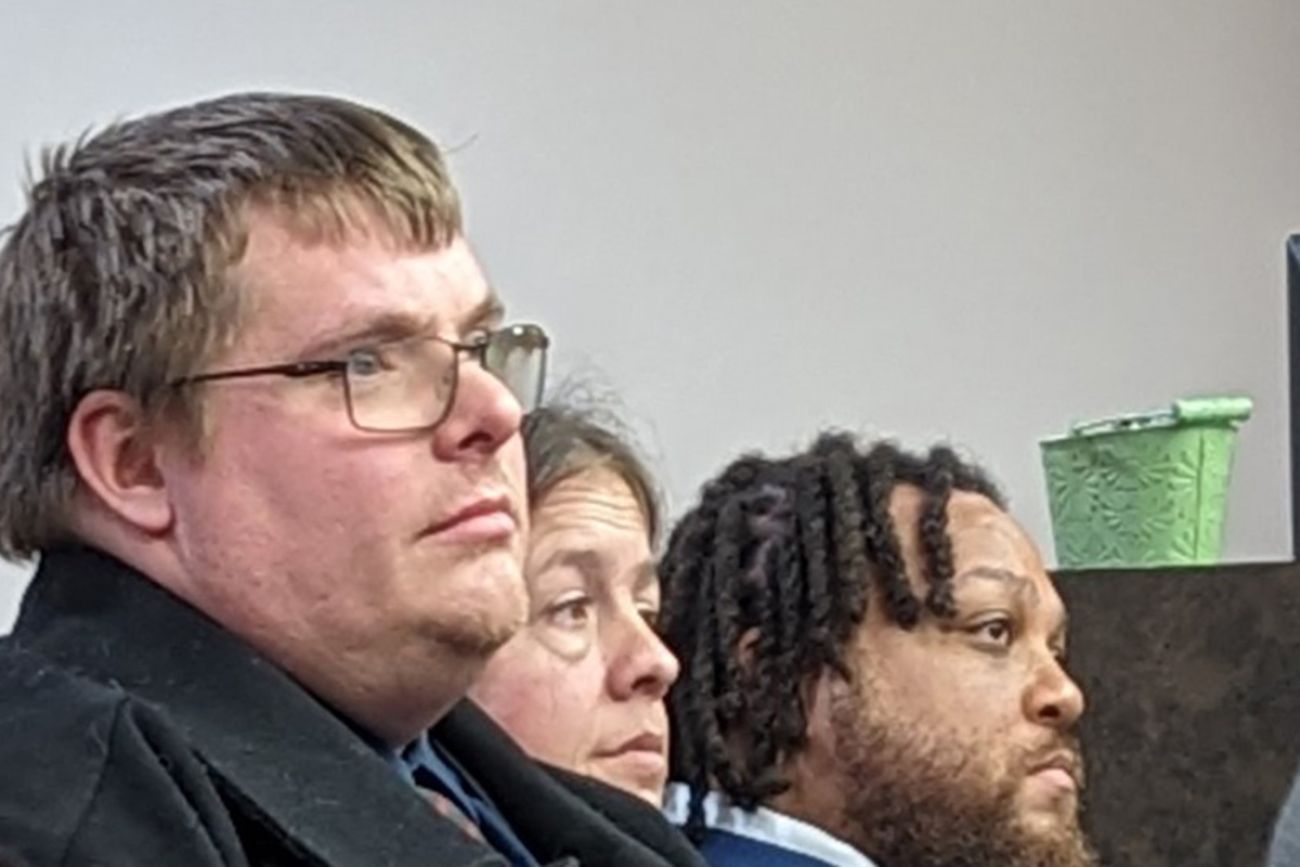Michigan candidates tell court: ‘No question’ we were duped by signature fraud


- Three people face more than two dozen charges on accusations of collecting fraudulent signatures for multiple state and local candidates in 2022
- Five Republican gubernatorial candidates were blocked from ballot because of the alleged fraud
- Those charged could face dozens of years in prison
WARREN — Multiple candidates for governor and county judge got swept up in the rush to get on the 2022 ballot in Michigan — and each said they put their faith in two companies that promised to help get them there.
But in testimony Wednesday in 37th District Court, the onetime candidates and their advisers said they were fooled by a private firm that charged them tens of thousands of dollars to get signatures required by Michigan law to qualify for the ballot.
“I have never seen anything like this before,” said John Yob, a political consultant for two Republican candidates for governor, former Detroit Police Chief James Craig and millionaire businessman Perry Johnson.
Related:
- Board denies Craig, Johnson, others spots on Michigan ballot. Lawsuits next.
- How one firm in a ‘Wild West’ industry upended the Michigan GOP governor race
Both candidates were disqualified from the primary ballot because state elections officials deemed thousands of their signatures invalid.
Now, the principals of the signature-gathering firms — Shawn Wilmoth, his wife Jamie Wilmoth-Goodin and Willie Reed — face dozens of years in prison on multiple charges alleging they defrauded campaigns and orchestrated teams of people to forge signatures and illegally fill out petitions.
Judge John Chmura heard testimony all day Wednesday in a preliminary hearing that will determine whether the three will face trial. The proceedings are scheduled to continue Thursday and Friday.
More than a half-dozen witnesses testified Wednesday, including Craig and Donna Brandenburg, another failed GOP candidate. They outlined how nearly 70,000 signatures that cost campaigns $11 apiece were thrown out by the Michigan Bureau of Elections.
Michigan requires gubernatorial candidates to get 15,000 signatures to qualify for the ballot.
Lacking valid ones, onetime front-runner Craig, Brandenburg, Johnson, Michael Brown and Michael Markey were disqualified.
Conservative news host Tudor Dixon emerged from a diminished field of five as Republican nominee before losing to Democratic Gov. Gretchen Whitmer by over 10 percentage points in the general election.
During testimony Wednesday, most candidates and campaigns acknowledged they didn’t check the signatures provided by the firm or realize there was a problem until it was too late.
But some had an inkling, according to testimony.
Fred Dare, the husband of Tricia Dare, who wanted to run for an Oakland County judicial seat, testified he was skeptical of Wilmoth when he hired him in 2022, ultimately paying him nearly $27,000.
“Is this on the up and up?” Dare said he wondered after meeting with Wilmoth.
When Wilmoth volunteered to quit if he didn’t feel comfortable, Dare testified he decided to stay with the company.
Dare told the court there was “no question” he had been fooled.
Signatures were at a premium in 2022 following a worker shortage, as well as a glut of potential ballot issues in Michigan, California and other states.
That prompted rates to soar from the $5 to $7 per signature rate companies charged in prior years.
The signature-gathering companies typically use transient workers who travel from state to state or need quick cash, Bridge has reported.
The scandal reshaped the 2022 election, knocking out Craig and Johnson, who had kicked off his campaign with a $1.5 million ad during the Super Bowl.
Craig is now running for Senate in Michigan as a Republican, while Johnson briefly ran for president but dropped out last fall.
Testifying on Wednesday, Brandenburg repeatedly questioned the Michigan Secretary of State officials who handle elections, saying she sought many more signatures — over 29,000, nearly double what was required — to combat what she called “arbitrary” challenges by the department.
Yob, who said he had been part of hundreds of previous campaigns, said he felt he “did not believe the Secretary of State was neutral in these matters.”
But no one has argued — either in 2022 or during Wednesday’s hearing — that the signatures challenged by the state are valid.
The Bureau of Elections, a branch of the secretary of state, analyzes petition signatures and Adam Fracassi, the regulatory manager for the Bureau of Elections, said they noticed the patterns that identified the bad signatures.
On Wednesday, Fracassi told the court about what he said were the obvious signs of forgery — signatures with handwriting that matched others on the same page, numerous signatures of dead voters or those who had moved out of Michigan, misspelled city names, and signatures in which last names were abbreviated.
Those flaws caused the Bureau of Elections to take the “unprecedented” step of knocking the five governor candidates and a couple judicial candidates from the ballot.
“I’ve never seen 70,000 (bad) signatures occur (from) 10 candidates,” said Fracassi said.
When evaluating petition signatures, he said the department errs on the side of the voters, giving them the benefit of the doubt before ruling it out.
“You can’t give the benefit of the doubt to a voter who is dead or not registered,” he said.
When testimony resumes, another former GOP gubernatorial candidate — Ryan Kelley — is expected to testify about accusations that he paid the firm for signatures and got none in return.
He will be testifying from a federal prison, where Kelley is serving time related to the Jan. 6, 2021, Capitol riots, said Chris Kessel, an assistant attorney general.
See what new members are saying about why they donated to Bridge Michigan:
- “In order for this information to be accurate and unbiased it must be underwritten by its readers, not by special interests.” - Larry S.
- “Not many other media sources report on the topics Bridge does.” - Susan B.
- “Your journalism is outstanding and rare these days.” - Mark S.
If you want to ensure the future of nonpartisan, nonprofit Michigan journalism, please become a member today. You, too, will be asked why you donated and maybe we'll feature your quote next time!


